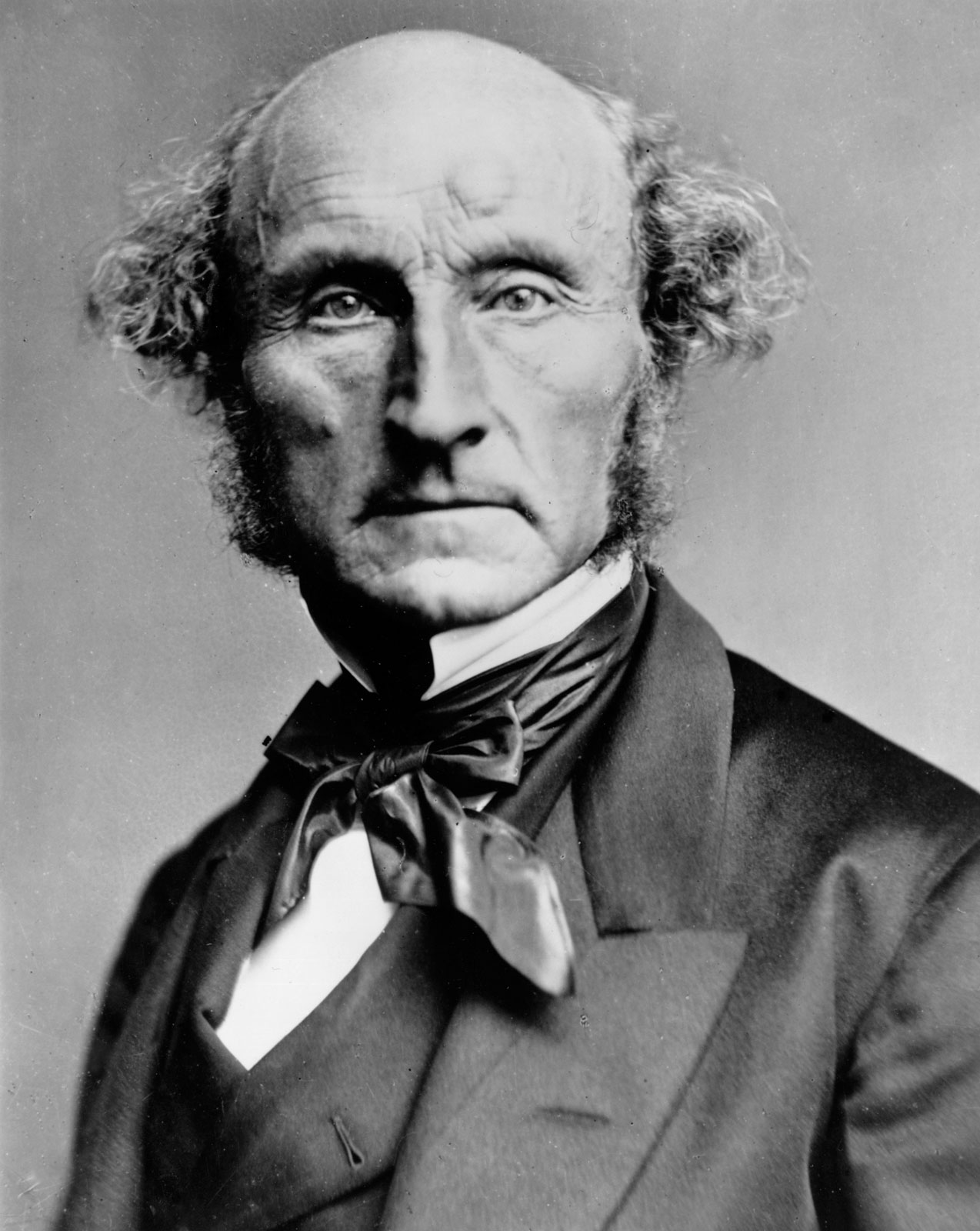John Stuart Mill Berühmte Zitate
Utilitarismus
(Original engl.: "It is better to be a human being dissatisfied than a pig satisfied; better to be Socrates dissatisfied than a fool satisfied. And if the fool, or the pig, are of a different opinion, it is because they only know their own side of the question. The other party to the comparison knows both sides.) - Utilitarianism, 1863, Chapter 2. gutenberg.org http://www.gutenberg.org/etext/11224
Grundsätze der politischen Oekonomie
System der deduktiven und induktiven Logik, Siebenzehntes Capitel. Vom Zufall und seiner Elimination, zeno.org http://www.zeno.org/nid/20009227016
"If the same casual coincidence never occurred a second time, we should have an easy test for distinguishing such from the coincidences which are results of a law." - John Stuart Mill, The Collected Works of John Stuart Mill, Volume VII - A System of Logic Ratiocinative and Inductive, Being a Connected View of the Principles of Evidence and the Methods of Scientific Investigation (Books I-III), ed. John M. Robson, Introduction by R.F. McRae (Toronto: University of Toronto Press, London: Routledge and Kegan Paul, 1974). 18.2.2017. http://oll.libertyfund.org/titles/246#lf0223-07_footnote_nt_2719_ref
John Stuart Mill Zitate und Sprüche
Über die Freiheit
Rektoratsrede an der Universität St. Andrews 1867. Deutsch von :w:Adolf Wahrmund. In: Gesammelte Werke Erster Band. Leipzig 1869. S. 206 books.google https://books.google.de/books?id=OShCAAAAcAAJ&pg=PA206
Original engl: "Universities are not intended to teach the knowledge required to fit men for some special mode of gaining their livelihood. Their object is not to make skilful lawyers, or physicians, or engineers, but capable and cultivated human beings." - https://en.wikisource.org/wiki/Inaugural_address_delivered_to_the_University_of_St._Andrews,_Feb._1st_1867
In einer Parlamentsdebatte mit dem dem Konservativen John Pakington MP vom 31. Mai 1866
Hansard, vol 183 http://hansard.millbanksystems.com/commons/1866/may/31/committee-adjourned-debate#S3V0183P0_18660531_HOC_32, col 1592
Original engl.: I did not mean that Conservatives are generally stupid; I meant, that stupid persons are generally Conservative. I believe that to be so obvious and undeniable a fact that I hardly think any hon. Gentleman will question it.
John Stuart Mill: Zitate auf Englisch
Attributed to John Stuart Mill in The Phrenological Journal and Science of Health, Vol. LXXXV (September 1887), p. 170
Disputed
In a Parliamentary debate with the Conservative MP, John Pakington (May 31, 1866). Hansard, vol 183, col 1592. Pakington was referring to Footnote 3 to Chapter 7 of Mill's "Considerations on Representative Government".
Misquoted as "I never meant to say that the Conservatives are generally stupid. I meant to say that stupid people are generally Conservative. I believe that is so obviously and universally admitted a principle that I hardly think any gentleman will deny it." in "Life of John Stuart Mill" (1889) by W. L. Courtney, p. 147.
This seems to have become paraphrased as "Conservatives are not necessarily stupid, but most stupid people are conservatives." which was a variant published in Quotations for Our Time (1978), edited by Laurence J. Peter.
Quelle: On Liberty (1859), Ch. II: Of the Liberty of Thought and Discussion
Quelle: An examination of Sir William Hamilton's philosophy, and of the principal philosophical questions discussed in his writings
Quelle: On Liberty (1859), Ch. II: Of the Liberty of Thought and Discussion
Quelle: On Liberty (1859), Ch. III: Of Individuality, As One of the Elements of Well-Being
“Both teachers and learners go to sleep at their post as soon as there is no enemy in the field.”
Quelle: On Liberty
Quelle: Autobiography (1873)
https://archive.org/details/autobiography01mill/page/43/mode/1up p. 43
Quelle: https://archive.org/details/autobiography01mill/page/138/mode/1up p. 138
Quelle: Autobiography (1873), Ch. 7: General View of the Remainder of My Life (p. 206)
Quelle: Autobiography (1873)
Quelle: https://archive.org/details/autobiography01mill/page/47/mode/1up p. 47
Quelle: Autobiography (1873)
Quelle: https://archive.org/details/autobiography01mill/page/160/mode/1up pp. 160-161
Quelle: Autobiography (1873), Ch. 7: General View of the Remainder of My Life (p. 167)
An Examination of Sir William Hamilton's Philosophy (1865) as quoted in 5th ed. (1878) p. 617. https://books.google.com/books?id=ojQNAQAAMAAJ&pg=PA617
Principles of Political Economy (1848), Book IV, Chapter VI, §2
Dr. Whewell on Moral Philosophy (1852), in Dissertations and Discussions: Political, Philosophical, and Historical, vol. 2, London: John W. Parker and son, 1859, p. 485 https://books.google.it/books?id=w-I3AQAAMAAJ&pg=PA485
Quelle: Autobiography (1873), Ch. 1: Childhood and Early Education
